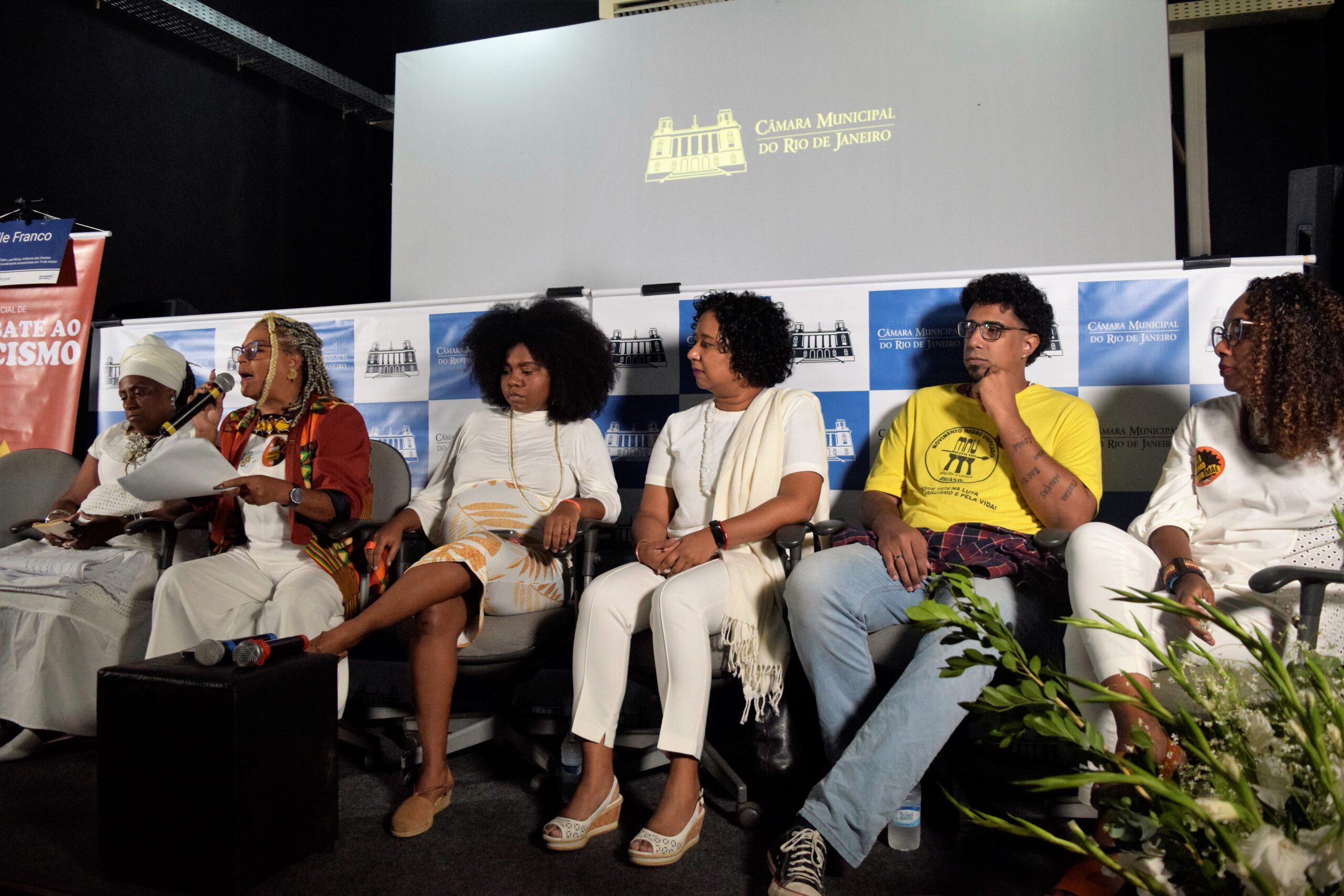
On May 5, Rio de Janeiro City Council members launched a Special Commission to Combat Racism at the Museum of Afro-Brazilian History and Culture (MUHCAB). This parliamentary working group is made up of three Black councilors: President Mônica Cunha, Rapporteur Thais Ferreira, and Sitting Member Edson Santos.
The event began with a performance by singer Layza Griot and was attended by some 250 people. Special guests included Public Defender Danielle da Silva, Unified Black Movement (MNU) activist Lucas Batal, Candomblé Priestess Wanda Araújo from the Ylê Asé Egi Omim temple, and National Archive Director General Ana Flavia Magalhães. The event was attended by leaders, activists, members of social and religious movements, and representatives of state institutions and civil society including the Federal Prosecutor’s Office (MPF), Rio de Janeiro Public Defender’s Office, Rio de Janeiro State Public Prosecutor’s Office (MPRJ), Ministry of Health Executive Secretariat (SE), Coordination for the Promotion of Racial Equality, Municipal Culture Secretariat, Fiocruz, Brazilian Bar Association Rio de Janeiro Chapter (OAB-RJ), City of Rio de Janeiro Union of Domestic Workers, the United Movement of Street Vendors (MUCA), and State Council for LGBTQIAP+ Rights.
“We did research… and saw that there is not [nor has there ever been] a commission to combat racism. We know that there are initiatives and institutions that use other mechanisms and have been fighting for some years. We are not inventing the wheel, but we want to say that we are going to combat [racism] and we do not accept anything less. We want to end racism. We are going to show at least half of what this racism has done and continues to do to our people, our bodies, and our lives.” — Mônica Cunha
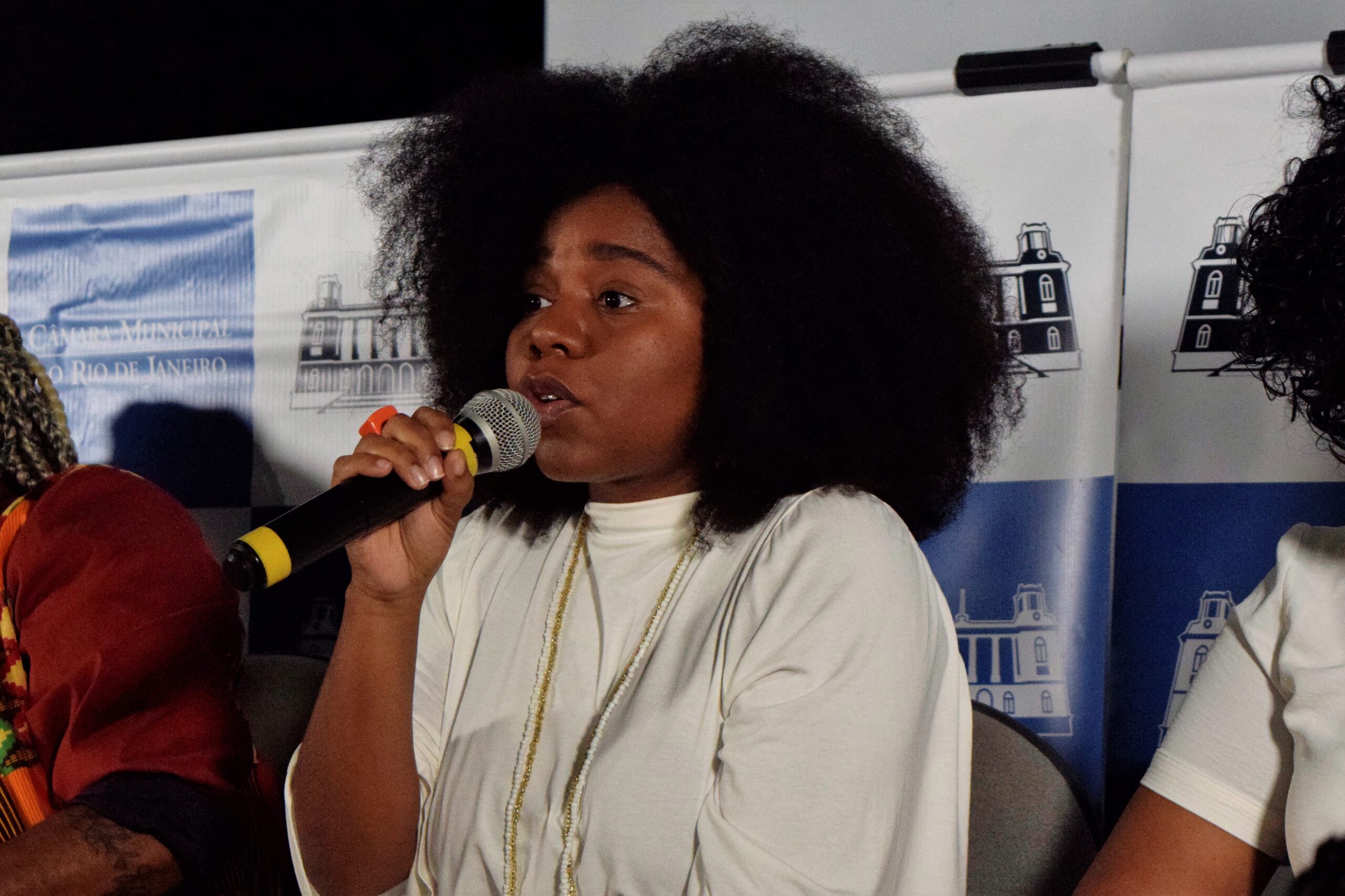
In her talk, Rapporteur Thais Ferreira spoke about the creation of the commission and vented about how, even in the face of alarming statistics concerning the Black population, the project still had to overcome bureaucratic barriers: “It’s incredible how fragile our pen still is.” According to the 2022 Social Inequalities by Color or Race in Brazil research report by the Brazilian Institute of Geography and Statistics (IBGE), 69% of managerial positions are still occupied by white people, while Black and brown people occupy 29.5%. In a country where 56% of the population if Black.
“It’s time to talk about us. We need to gather even more people who support the existence of this project.” — Ana Flávia Magalhães, National Archive director
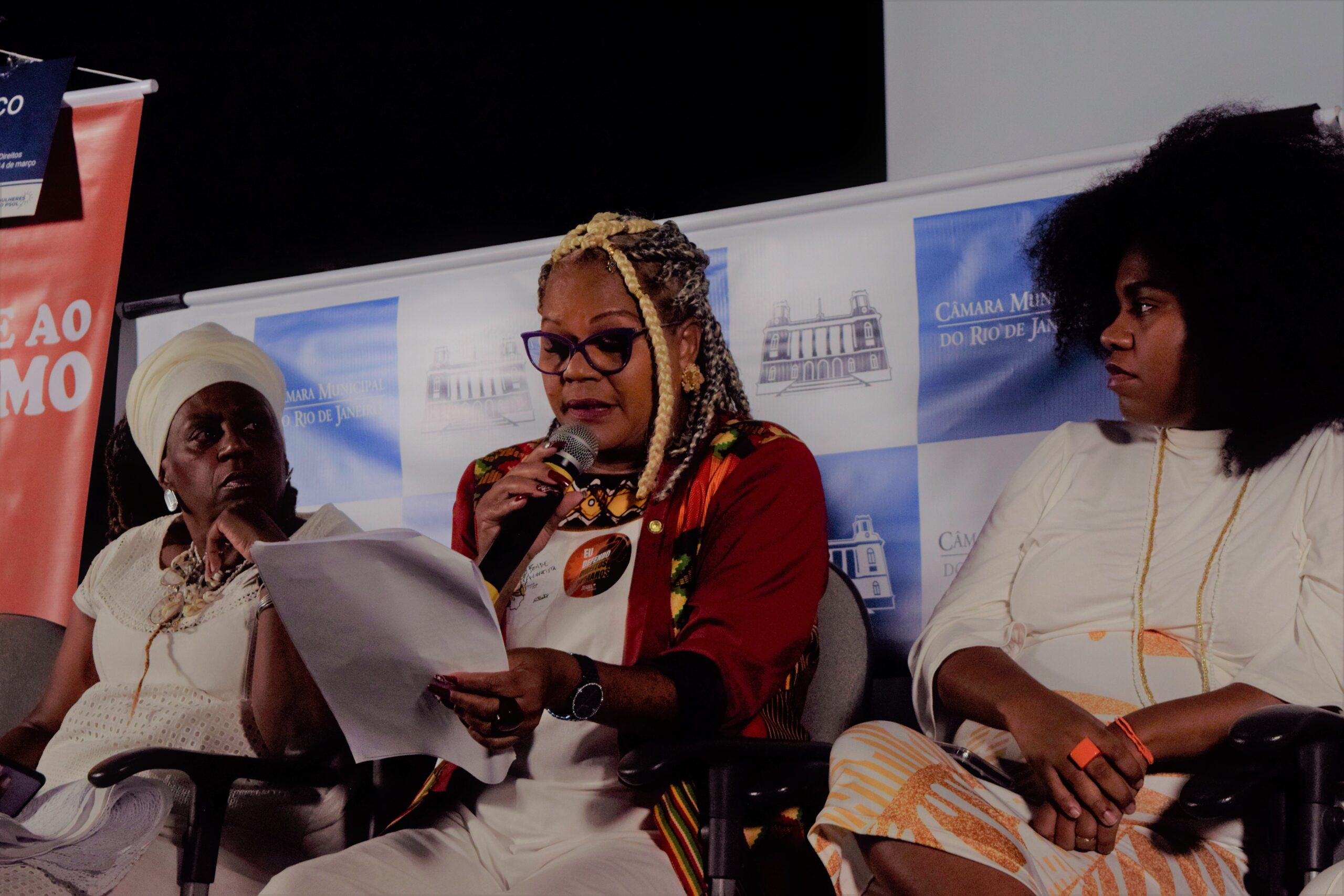
The meeting presented the main objectives of the committee’s work, which are:
- To analyze public policies and their effectiveness for the Black population in the spheres of health, culture, and education;
- To promote and encourage popular participation through public hearings and debates and monitoring public infrastructure;
- To provide support to victims of racial crimes through a dedicated WhatsApp channel.
The service channel will work together with the Public Defender’s Office, Rio de Janeiro State Public Defender’s Office Ombudsman, and the Rio de Janeiro Legislative Assembly’s Human Rights and Citizenship Commission (CIDH). The work will last for one year and conclude with a report publishing information on the effects of racism and suggestions from the team for the application of better anti-racist public policies in the city of Rio.
“We only have one year and it’s going to be lots and lots of work, but we’re going to change Rio de Janeiro. It’s been 17 years since they took my Rafael and I haven’t had time to feel the pain. The State doesn’t give us time to feel it and I’ve decided that I’m not going to stop fighting.” — Mônica Cunha
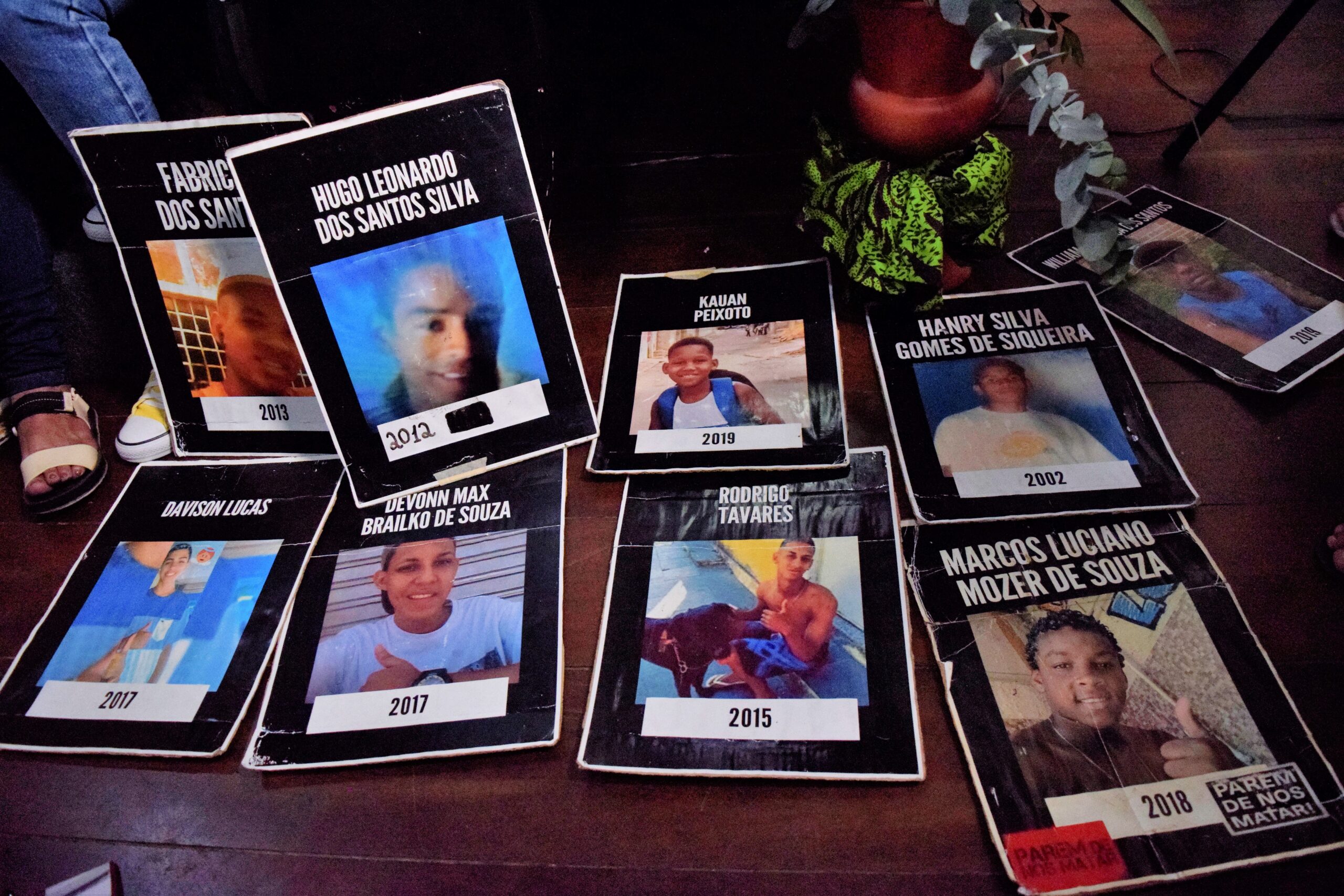
According to IBGE’s Social Inequalities by Color or Race in Brazil report, the 2021 attendance rate for the Enem university entrance exam according to interviewee skin color showed that Black and brown Brazilians attended 60.2% and 62.9% respectively, while 72.1% of whites showed up at the test site on the day of the exam. The study also presents homicide rates in relation to skin color, showing that Black and brown people are murdered twice as often or more than white people: 21.9% for Black people, 34% for brown people, and 11.5% for white people. Afro-Brazilians are underrepresented in universities, parliaments, and companies, and overrepresented in morgues, as victims of homicides and urban and police violence.
Based on the knowledge of these and other racial disparities and experiencing it himself as a Black man, State Deputy Professor Josemar followed Monica Cunha by reinforcing the importance of continuity and calling for the parliamentary group’s work to continue for an indefinite period. He and many others present asked themselves: if Rio de Janeiro was the largest slave port in history, if there were 388 years of Black slavery in Brazil, if formal abolition accompanied by structural racism, criminalization of poverty, penal selectivity, stigma against favelas, and denial of rights has lasted 135 years, why would this unprecedented and necessary commission last only one?
“If racism is structural, the commission has to be permanent!” — State Deputy Professor Josemar
Public Defender Daniele da Silva spoke about what it is like as one of the few Black people working in racial defense in the legal field. According to her: “Outrage is important in war. As Mano Brown says, it drives us. But what we want is to write a story about quality of life, in a peaceful way.”
“This is a sacred space and one of struggle. Today, I see other colleagues who, like me, fought for a space to shelter our pain, crying, and healing. It is a great victory to have a this space… The anti-racist project belongs to the Black community. We have to talk about where our wounds hurt.” — Camdomblé Priestess Wanda Araújo
The meeting also included the participation of the Mães de Manguinhos collective, formed by mothers who have lost children in police operations. Mônica Cunha shares this pain: her son Rafael da Silva Cunha was killed by police in the Riachuelo neighborhood 17 years ago. Cunha founded the Moleque Movement with the aim of supporting mothers and other victims of state violence. Speaking with emotion, she said: “We want an end to racism. And I’m going to let the whole world know about it until the last day of my life.”
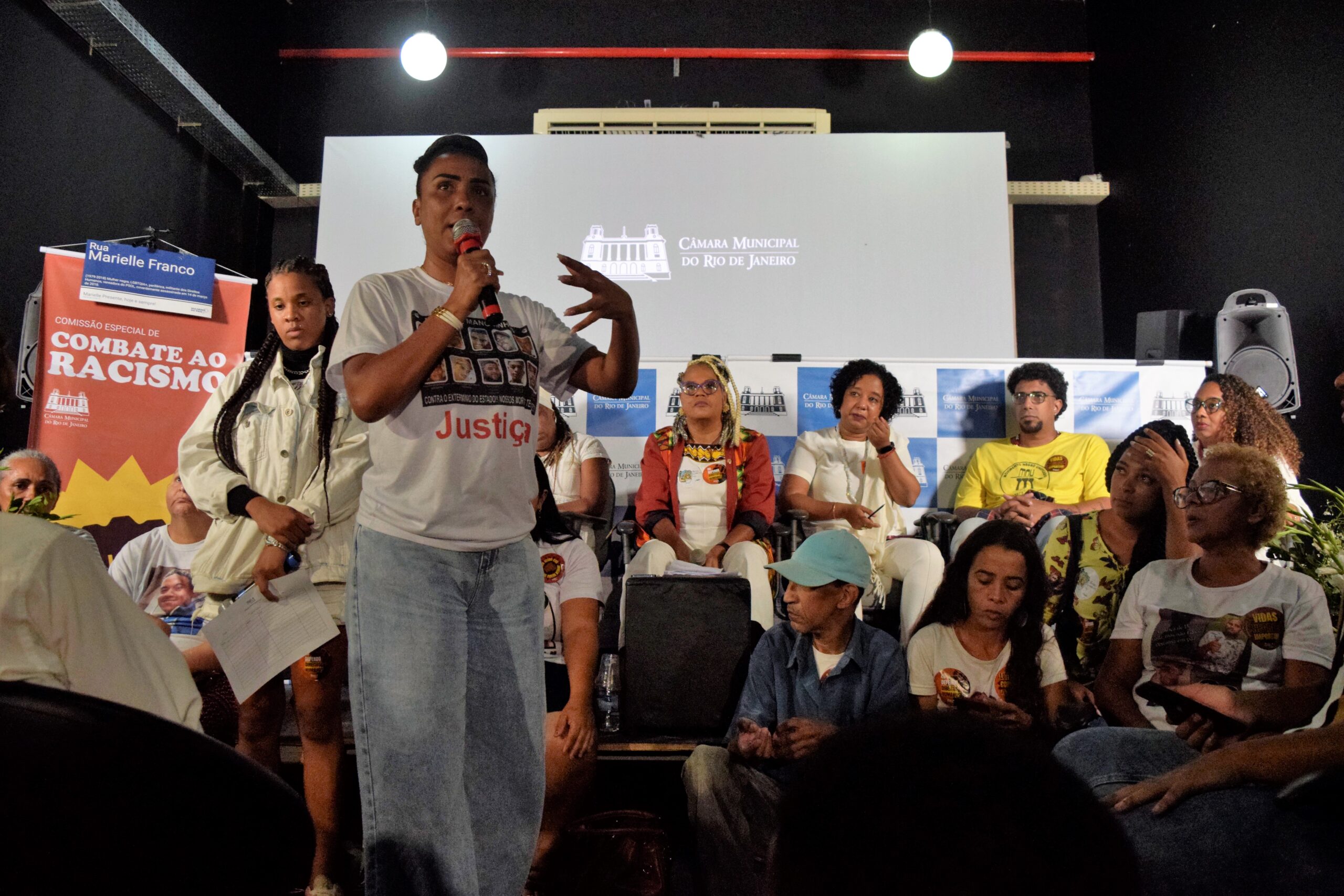
For Ana Paula Oliveira, whose son Jonathan Oliveira was murdered by police from the Pacifying Police Unit (UPP) in Manguinhos in 2014, the commission is an instrument of struggle, above all for the right to be a mother without fear.
“We want to be able to be buried by our children and not the other way around.” — Ana Paula Oliveira
Rapporteur Thais Ferreira, pregnant with her third child, stated her feeling that motherhood for Black women is an act of resistance. She reinforced the role of organized initiatives between different public bodies and civil society in the construction of anti-racist public policies and reparations for Black people. The event ended with a performance by Companhia de Aruanda, a dance and culture group of young residents from communities in the North Zone and Baixada Fluminense.
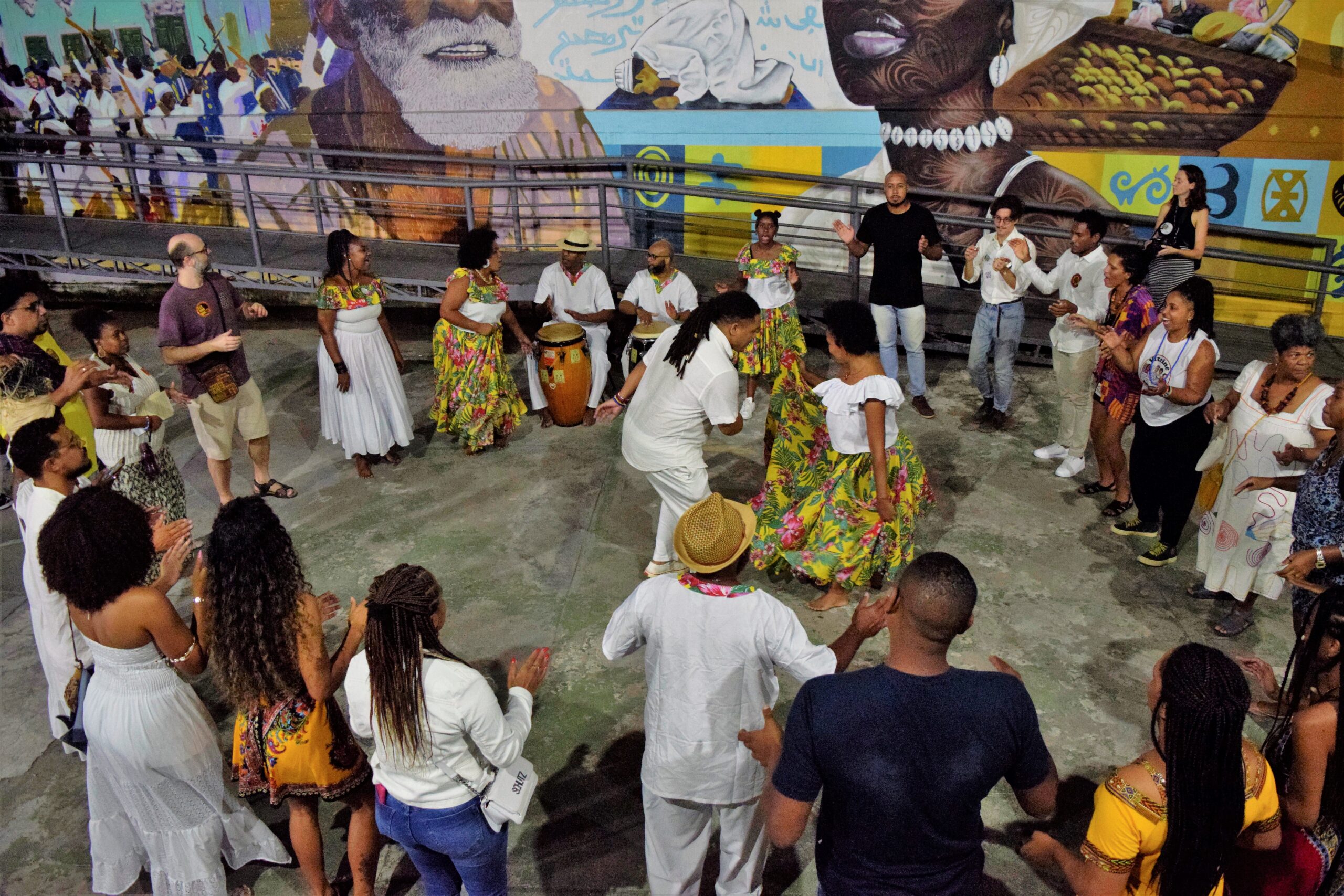
About the author: Amanda Baroni Lopes is a journalism student at Unicarioca and part of the 1st Journalism Laboratory of Maré community newspaper Maré de Notícias. She has two blogs: AhManda Notícias, where she covers all kinds of content, and Hip Hop Docs about breakdancing in Brazil. She is the author of the Anti-Harassment Guide on Breaking, a handbook that explains what is and isn’t harassment to the Hip Hop audience and provides guidance on what to do in these situations. Lopes is from Morro do Timbau and currently lives in Nova Holanda, both favelas within the larger Maré favela complex.
